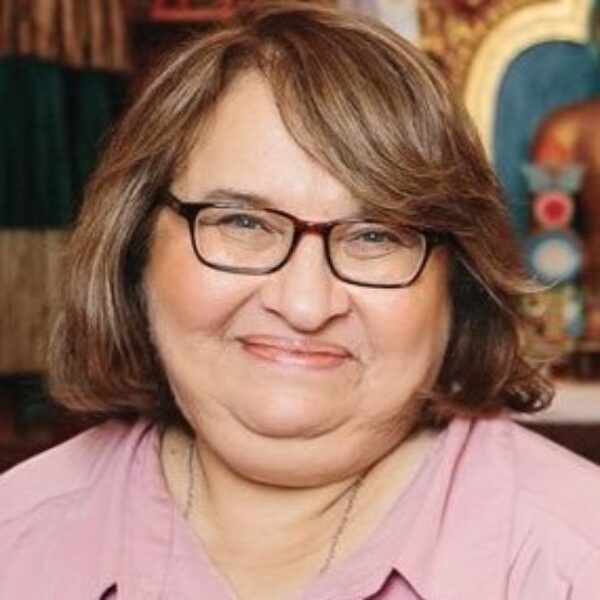
Image by Jenny Downing/Flickr, Attribution.
To Separate Our Dreams from Others’ Fears
The stories told by others about us — from teachers and mentors to bosses, colleagues, or fellow students — can have an enormous impact on how we perceive ourselves. Their stories can seep into our consciousness and come to define who we think we are and what we believe ourselves capable of whether or not we deserve to be happy, whether or not we will know love.
Although we each have a unique personality and singular gifts, none of the qualities with which we identify is fixed. Real love for ourselves is best expressed by holding our stories more lightly and accepting, with an equally light touch, that not every story someone holds about us is absolutely true. The world is always changing, as are we.
I have several friends who are artists or writers, and a few who experienced their most significant success with their first work, sometimes at a very young age, often earning them prestigious prizes and great accolades. But for every single work thereafter, critics mourned the loss — or so it seemed to my friends — of that early spark of genius, now changed into something perceived and labeled as “compromised.”
Such a public pronouncement of “not living up to their potential” presaged hard years ahead for some of these artists, who have thus far not been able to escape the burden of someone else’s projections.
Alternatively, writers or artists who receive poor reviews early in their careers may never live up to their full potential because it is so devastating. I can remember, and can sadly quote practically verbatim, a pretty nasty rejection letter for my first book, which came a couple of days after (thankfully) another publisher had accepted it.
I just realized this moment — while writing this column — that I actually don’t recall the wording of the acceptance letter, which opened the door for my writing career, my ability to offer the practice of lovingkindness in a much bigger way in the world, and so much creativity and joy and connection in my life. I just draw a blank when I try to remember the acceptance letter. But that rejection letter…! That one I remember nearly perfectly. Looking back, I’m so glad I didn’t just give up on writing and on myself, which I might so easily have done.
Inevitably, the society in which we live has a narrative about who we are. If it’s negative, it’s only when we challenge it that we can assert our worth. This frees us to accept that our potential is as boundless as our heart, and gives us permission to create a space in our life that is vibrant with possibilities. In reality, no matter what anybody says, our story is ever unfolding.
For example, Mae Jemison, the first black female astronaut at NASA, set a precedent for her gender and race when she flew to space in 1992. Jemison had expressed interest in space exploration and being an astronaut early on in her childhood. As she grew up, she maintained an interest in the sciences and attended Cornell Medical College, preparing to become a physician.
Mae Jemison never lost her interest in space, despite the fact that most astronauts were white men and that her parents voiced enthusiastic support for her pursuit of medicine. After all, she would be defying expectations as a female African-American doctor, too.
But in 1987, after applying to the NASA astronaut program, Jemison was selected and made her first trek to space in 1992. Months before her journey, she told the Associated Press:
“People automatically think if you’re a black astronaut or a black celebrity that you appeal to mainly — or only — the black audience. It’s just as important for a young white boy to see a black astronaut as a young black girl. Everyone has skills and talents, and no one has a lock on scientific ability or physical ability.”
Mae Jemison’s words and actions illustrate how we can literally soar, once we recognize the limiting power of the stories others tell us. By challenging cultural stereotypes, Jemison flew above and beyond what she and so many others thought was possible. It’s not easy being the “first” of anything. To do so implies a willingness to take risks, to step into the unknown and choose courage over fear.
Perhaps no contemporary storytelling trend is as damaging as Internet bullying and smear campaigns, which spread like wildfire and do irreparable harm. Fraudulent identities are common. Whole groups gang up on kids, calling their victims other derogatory terms and sometimes even parents get in on the act. Fifty-two percent of kids report having been bullied online, while about 20 percent contemplate suicide, and one in 10 attempt killing themselves. Given the proliferation of cell phones and social media usage among young people (the average age for obtaining a mobile phone now is 11.6 years old), the problem — and the heartbreak — are part of the culture.
At any age, it’s not always easy to genuinely know who we are underneath the stories others tell about us and the labels society heaps upon us. When we can separate our dreams from other peoples’ fears, our vision from other peoples’ biases, our hearts from other peoples’ singular narrations, real love for ourselves blossoms.



Share your reflection